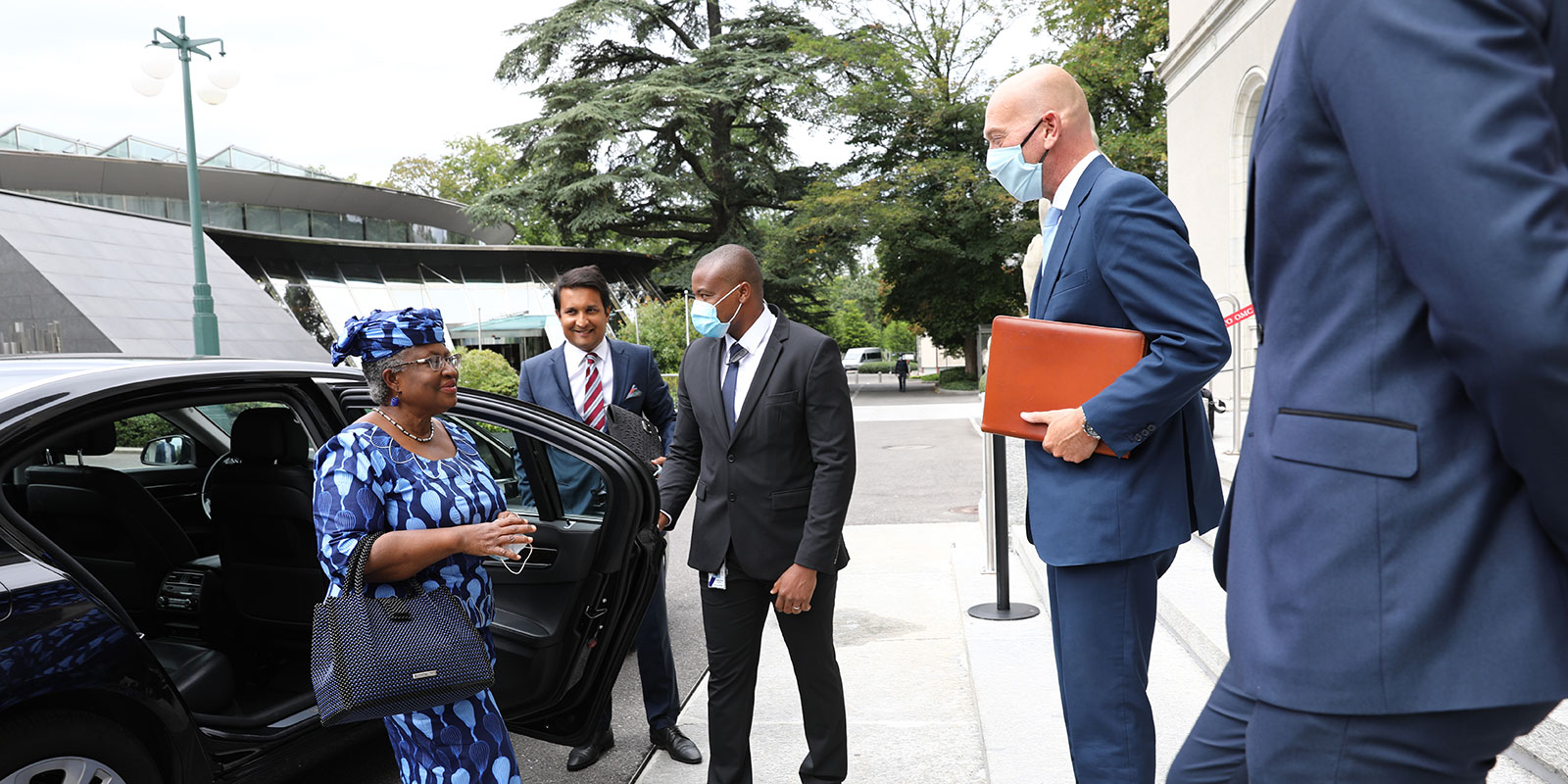A Nigerian-American economist and an international development expert, Dr. Okonjo-Iweala sits on the boards of several global public and private entities including the Global Alliance for Vaccines and Immunization (GAVI). She was also the Managing Director for Operations of the World Bank during a twenty-five-year career with the Bank, and she served two terms as Finance Minister of Nigeria. There is little doubt that she is eminently qualified to be the Director-General of the WTO.
Increasing nationalism will threaten the entire economic and political foundations of our world, precisely at a time when we need more global cooperation and collaboration – Vasu Gounden @WTO @NOIweala
Tweet
On being appointed Dr. Okonjo-Iweala took to twitter with this message, “it is done! Thank you @WTO members for finalizing my election today and making history. In the 73 years of GATT and WTO, honored to be First Woman and First African to lead. But now the real work begins. Ready to tackle the challenges of WTO. Forget business as usual!’’
In addressing the WTO, she said, “Our organization faces a great many challenges but working together we can collectively make the WTO stronger, more agile and better adapted to the realities of today.” While the world and the WTO has faced many crises over the years, today it is faced with two of the most challenging. For Dr. Okonjo-Iweala it is her proverbial baptism of fire. In her own words, it cannot be “business as usual’’ and the WTO has to be adapted to the ‘’realities of today”. What are those realities of today? There are many, but two of them stand out starkly as they threaten the stability of our global economic system and, more importantly, our sense of morality!
If the @WTO is going to bridge the divide between the two emerging power blocs it will have to change how it conducts business, from an adversarial litigious and negotiation bias to a mediation approach – Vasu Gounden @NOIweala
Tweet
The economic crisis that is currently underway threatens to be a prolonged one, with devastating consequences for the entire trading system that was painstakingly developed over decades. In a globalised world, an export driven China, as the super-factory of the world, amassed huge trade surpluses, some of which were bartered for with commodity concessions exchanged for infrastructure development in developing countries. The Trump Administration in the United States responded to this threat to its economic dominance with a ‘’Make America Great Again’’, inward looking policy, coupled with a tariff war with China. Consequently, over the last five years we have seen an increasingly divided world characterised by competitive geo-economic and geo-political alliances.
In addition, the COVID-19 pandemic, which started in China, disrupted supply chains across the world, mainly to countries dependant on goods from China. This set off a debate around “on-shoring’’ or ‘’near shoring”’ of supply-chains. These developments challenge the global trading system in a world that continues to be increasingly interlinked through inter alia technology, tourism and trade. Increasing nationalism will threaten the entire economic and political foundations of our world, precisely at a time when we need more global cooperation and collaboration.
Only an #IP waiver from the @WTO will allow countries like India, South Africa and Brazil to mass produce the vaccines, and ensure their equitable distribution across the world – Vasu Gounden
Tweet
The WTO will have to intervene and probably change how it conducts business, from an adversarial litigious and negotiation bias to a mediation approach, to bridge the increasing divide between the two emerging power blocs. In the words of its former Director-General, Pascal Lamy, in his foreword in the WTO’s World Trade Report 2007, ‘’ As an institution we legislate and litigate, and I believe we do this reasonably well. But is there something of a ‘missing middle’ where we should be engaged more in fostering dialogue that can bolster cooperation?’’
The second major challenge facing Dr. Okonjo-Iweala is a moral one, and relates to her membership on the Board of GAVI. It’s mission is, “’saving children’s lives and protecting people’s health by increasing equitable use of vaccines in lower-income countries”. It’s website also states that it is co-leading COVAX, the global alliance for “pooled procurement and equitable distribution of eventual COVID-19 vaccines”. Those vaccines have now arrived, produced by a number of private and public manufacturers. The only problem is that these vaccines are not pooled, nor are they being distributed equitably!
Will @WTO rise to the occasion and do business differently and will it create a new reality where national interest does not take precedence over global responsibility? – Vasu Gounden
Tweet
At the heart of this moral conundrum is the WTO. It controls and regulates global intellectual property (IP) rights through the Agreement on Trade-Related Aspects of Intellectual Property Rights (Trips). In the case of the COVID-19 vaccine, IP rights vests with multi-nationals, many of whom had their COVID-19 vaccine research subsidised through public funds. Only an IP waiver from the WTO will allow developing countries like India, South Africa and Brazil, who have the capacity to manufacture vaccines, to mass produce the vaccines, and ensure their equitable distribution across the world. Currently 16% of the global population in mainly rich countries hold 60% of the vaccine supply, either because they paid for it, or produced it. Many of these countries have an over-supply of vaccines.
A world divided economically and politically, and a world driven by (vaccine) nationalism, is the reality of our current global order. Will the WTO rise to the occasion and do business differently and will it create a new reality where national interest does not take precedence over global responsibility?
Dr. Vasu Gounden is the Founder and Executive Director of ACCORD.


